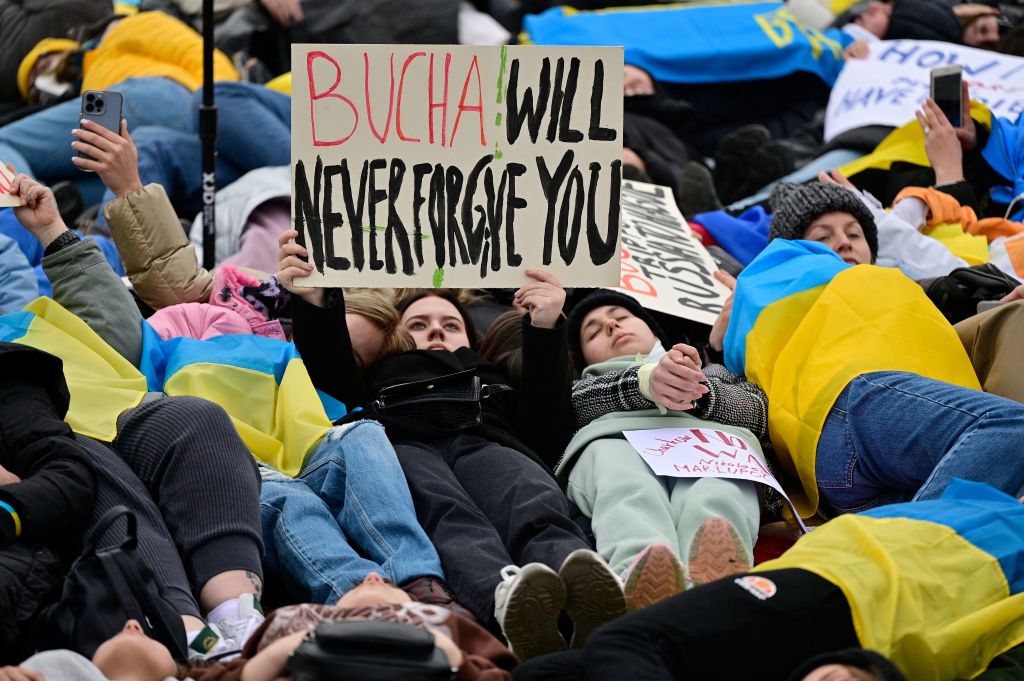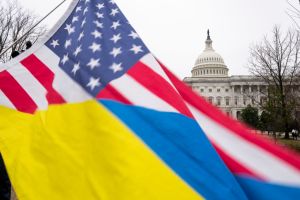Russia stands accused of war crimes, with the latest allegation that it bombed a train station in eastern Ukraine, killing dozens. Yet contra Moscow, the waging of war has never been a pure free-for-all. Every culture has had a sense of limits: when war could be legitimately declared and how it would be legitimately waged.
For ancient civilizations, war was a means of preserving the cosmic order. The ancient Egyptians believed their wars had to be sanctioned by the gods. Under the Zhou dynasty, Chinese armies would wage war only after oracles were consulted. Similar patterns are observable from the ancient Hindus to the North American Indian tribes.
The Second Lateran Council in 1139 banned the crossbow and ballista, the weapons of mass destruction of their day, because these armor-piercing instruments were considered too violent. By the 1300s a body of customary law had come into being to regulate the behavior of knights, the jus militare (law of the knights), or what we today call “chivalry.” Formal military courts of chivalry were created to try cases of alleged violations. In the High Middle Ages, these legal notions evolved into various regal ordinances to protect civilian populations against murder, rape, imprisonment and ransoming.
During the High Middle Ages, too, kings issued laws that imposed restrictions on war-making. The first was King John’s Constitutions of 1214, which broadened the class of protected persons in wartime to include not only the Church but peasants and property. A still more important law may have been King Richard II’s Ordinances of 1385 banning robbery, plunder and killing or capturing of unarmed women and clergymen during battle. The Ordinance of Charles VII of France (1439) and the Scottish Articles and Ordinances of War (1643) sustained these protections of civilian populations against murder, rape, imprisonment, ransoming and plunder.
It took until the nineteenth century for the law of war to be conceived as a body of international legal principles, and it wasn’t until after World War Two that a truly international judicial reckoning was deemed necessary. The Nuremberg International Tribunal and its sister court in Asia, the International Military Tribunal for the Far East, were the first to try accused war criminals on the principle of individual responsibility for violating international law. Other international conventions followed, the Genocide Convention (1948) and the Geneva Conventions (1949) being among the most significant.
The first international criminal tribunal since world war two was formed in the 1990s. The Balkan wars begot the International Criminal Tribunal for Yugoslavia by 1993, while the Rwandan genocide produced a comparable body in 1994. In 1998 the UN created, for the first time in history, a permanent criminal court with jurisdiction over war crimes, crimes against humanity, genocide and crimes against peace. The International Criminal Court’s charter, the Rome Statute, is explicitly modeled on the London Charter that created the Nuremberg tribunal in 1945.
The Preamble to the Rome Statute describes as one of the ICC’s aims the punishment of “shocking” crimes that threaten global peace. Such language brings to mind the war in Ukraine today. Because neither Russia nor Ukraine were signatories to the ICC, the Rome Statute does not allow prosecution of crimes against peace for the invasion. But crimes against humanity, war crimes and genocide might yet be prosecuted there. Moreover, because these acts confer universal jurisdiction, any signatory to the Geneva Conventions or Genocide Convention is legally authorized to prosecute suspected Russian war criminals in their domestic courts.
Are these long shots? Maybe. But as we approach the issue of Russian liability for war crimes in Ukraine, it may be premature to wring our hands in dejection. We are creatures capable of bestial cruelty but also with the capacity to set aside our worst tendencies as we reach toward justice. We’ve done it before in Geneva, Nuremberg, Tokyo and The Hague; we can do it again. Let Vladimir Putin beware.
This article was originally published in The Spectator’s UK magazine. Subscribe to the World edition here.


















